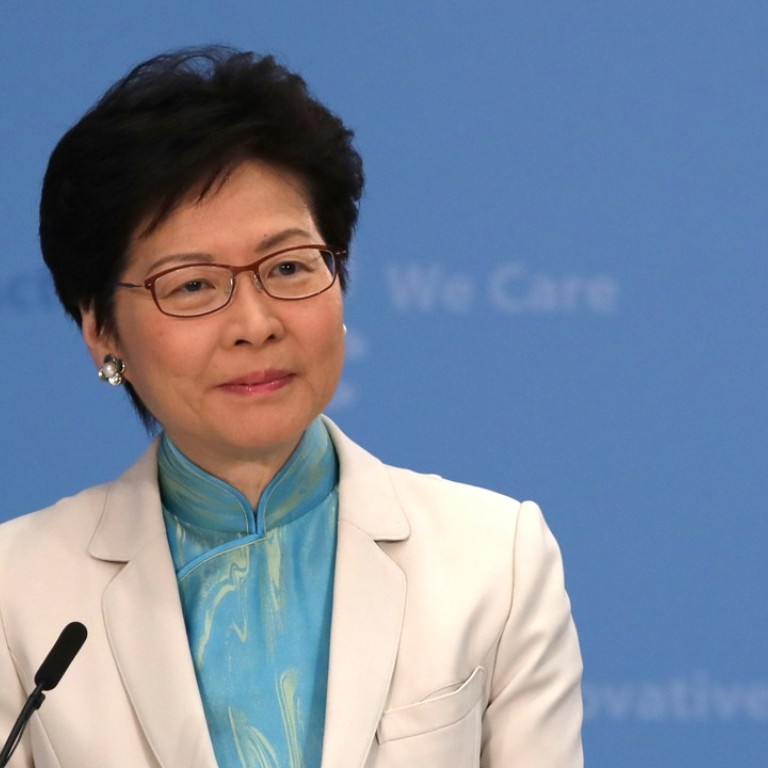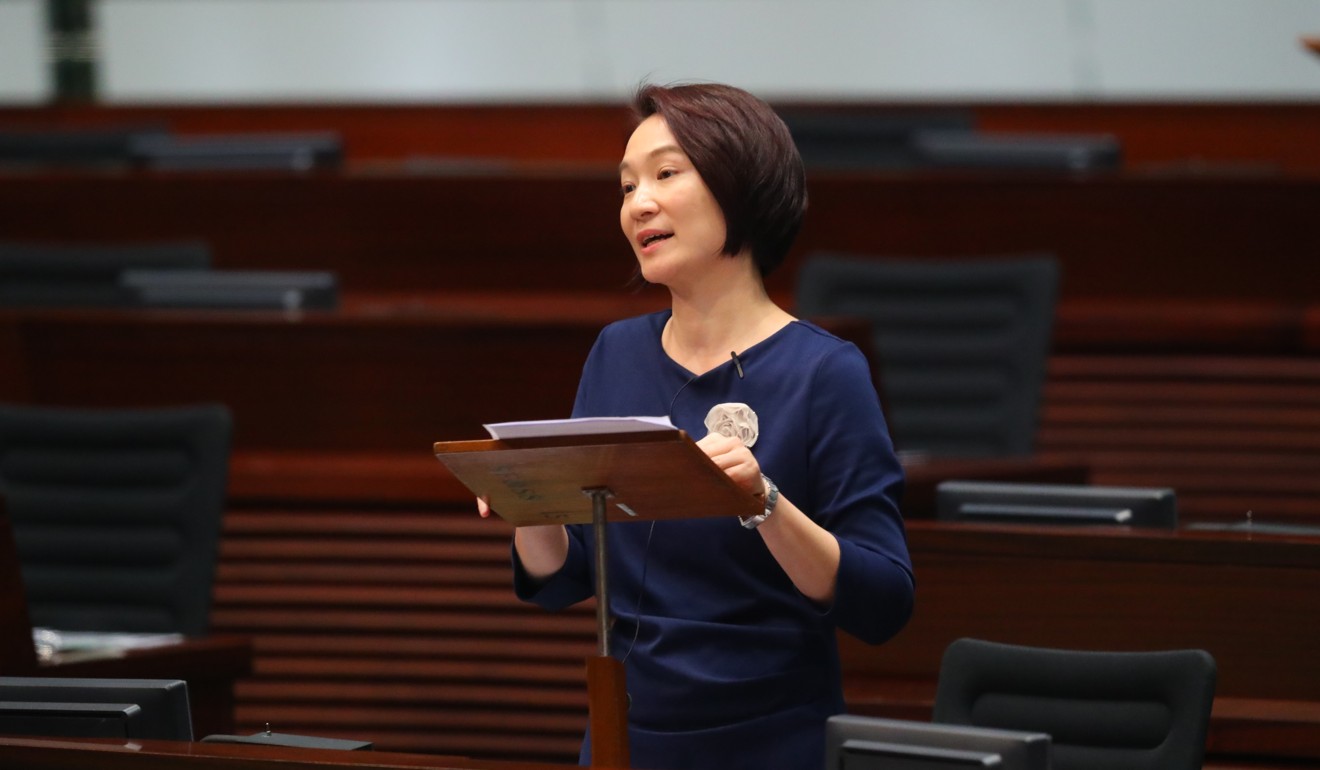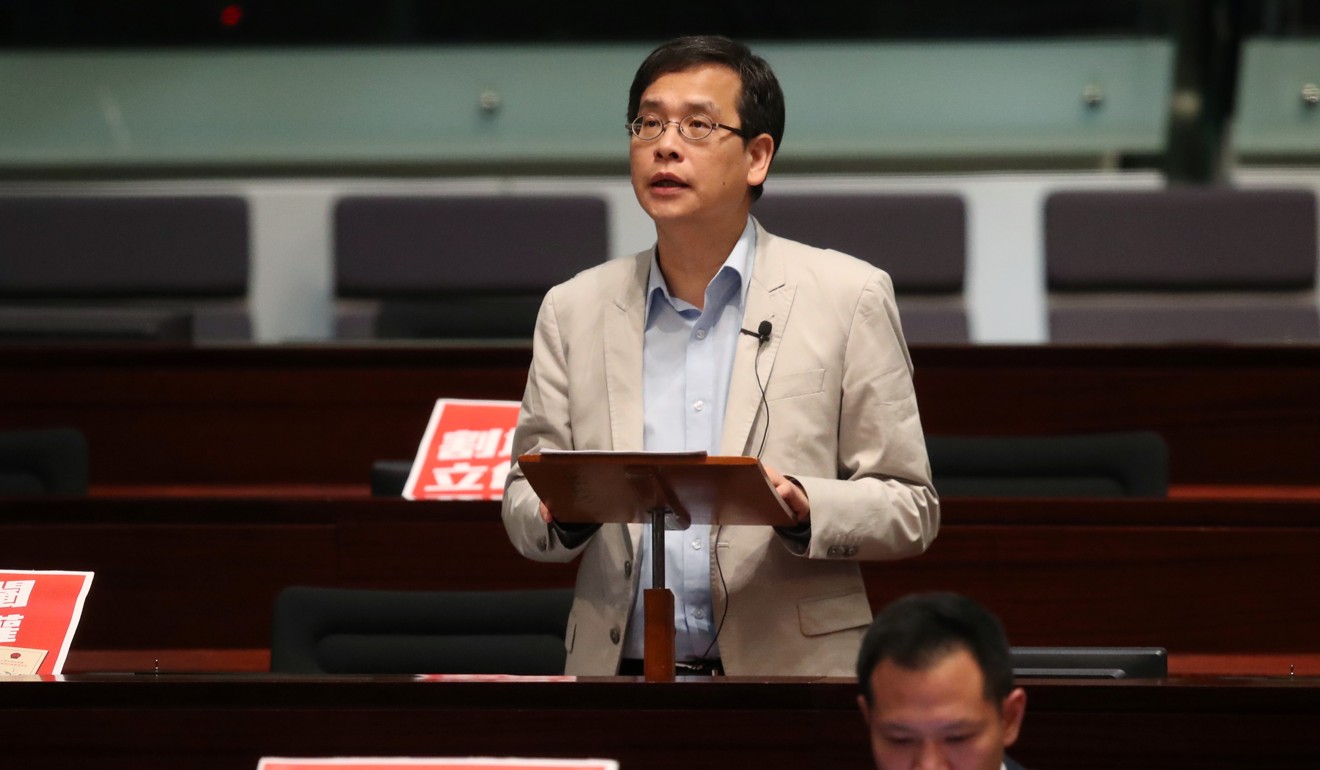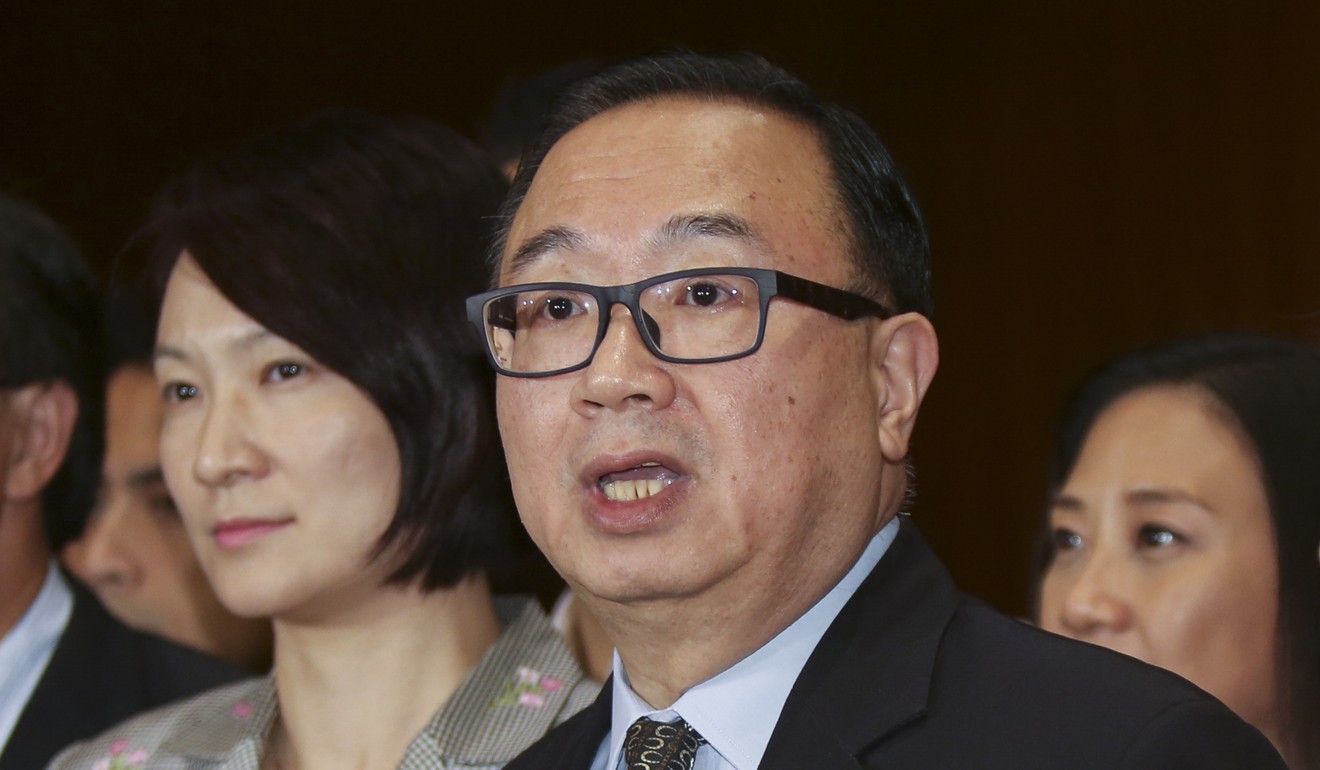
Carrie Lam’s policy address faces debate by Legco members but is likely to be approved
- Lantau land reclamation plan the main point of contention, with pan-democrats saying it is impractical and not delivering quickly enough
- With pro-establishment majorities in both constituencies, motion of thanks should pass
A motion of thanks was put forward by Legco’s House Committee chairwoman Starry Lee Wai-king on Wednesday.
Lawmakers will debate Lam’s policy choices over three days, with each having 30 minutes of speaking time.
Five key takeaways from Carrie Lam’s policy address
Although the first topic was economic diversity, lawmakers from both camps cut directly to Lam’s controversial “Lantau Tomorrow Vision”, a housing and land initiative that involves the creation of artificial islands and 1,700 hectares of land.

Our recurrent expenditure on social welfare, health care and education will continue to grow
The proposal is expected to cost upwards of HK$500 billion and the government has said it will provide housing for one million people.
Civic Party legislator Kwok Ka-ki said the proposal would not alleviate the urgent housing needs of over 270,000 households in the queue for public rental housing, and some 90,000 families living in inadequate housing conditions.
“Are you asking them to wait 20 to 30 years and live in tomorrow’s Lantau?”
Pan-democrat Kenneth Leung of the accountancy sector also questioned if the plan was a practical one, given the pressing needs of Hong Kong’s ageing population.
“The working population has reached its peak this year and will start to decrease … while our recurrent expenditure on social welfare, health care and education will continue to grow,” Leung said.
Director of the Chief Executive’s Office Eric Chan Kwok-ki rejected claims the Lantau proposal would overrun budget costing HK$1 trillion to realise.
Chan, however, said it was not possible to give a cost estimate, as the feasibility study has not yet started.
“How can we give an accurate figure? Not to mention the HK$1 trillion cost will not materialise,” Chan said.

He also said the 1,700 hectare proposal was a vision and the actual area of reclamation could change over time, stressing that any changes will be monitored by Legco.
Starry Lee Wai-king, chairwoman of the Democratic Alliance for the Betterment and Progress of Hong Kong, the largest pro-government party in the Legco, supported the land reclamation plan and the policy address.
“Land reclamation has created a lot of economic value for Singapore and Macau. If we had not given up on land reclamation during the Asian financial crisis, our young people and middle class would not be so unhappy today,” she said, in a reference to the market convulsions that gripped the region in the late 1990s.
Lee also accused critics of “demonising” land reclamation and using the issue to provoke social conflicts.

Pro-Beijing lawmaker Martin Liao Cheung-kong, who is an adviser to Lam in the Executive Council, accused the pan-democrats for fearmongering.
“Those in opposition please present another proposal, which will solve the issue of land shortages,” Liao said.
The motion of thanks requires majority support from both Legco’s geographical and functional constituencies to pass.
Majority of Hongkongers worried about cost of reclamation plan, survey finds
At least three major groups in the pro-democracy camp – the Civic Party, the Democratic Party and the Council Front – have said they would vote against the motion.
Last year, three pan-democrats voted in favour of the motion, including Leung, the education sector’s Ip Kin-yuen and Joseph Lee Kok-long of the health services sector.
While commending Lam’s education initiatives for easing the shortage of manpower and resources faced by schools, Ip said on Thursday that he would abstain from voting because of other controversial matters, including the Lantau reclamation proposal.
He cited a poll of 1,200 teachers by his union, noting that the results were very split over the policy address. A third of the respondents were satisfied with the blueprint, while a quarter were unsatisfied, Ip said.
Despite the opposition, Starry Lee’s motion is expected to pass, as the pro-establishment camp has a majority in both constituencies.
Additional reporting by Tony Cheung

